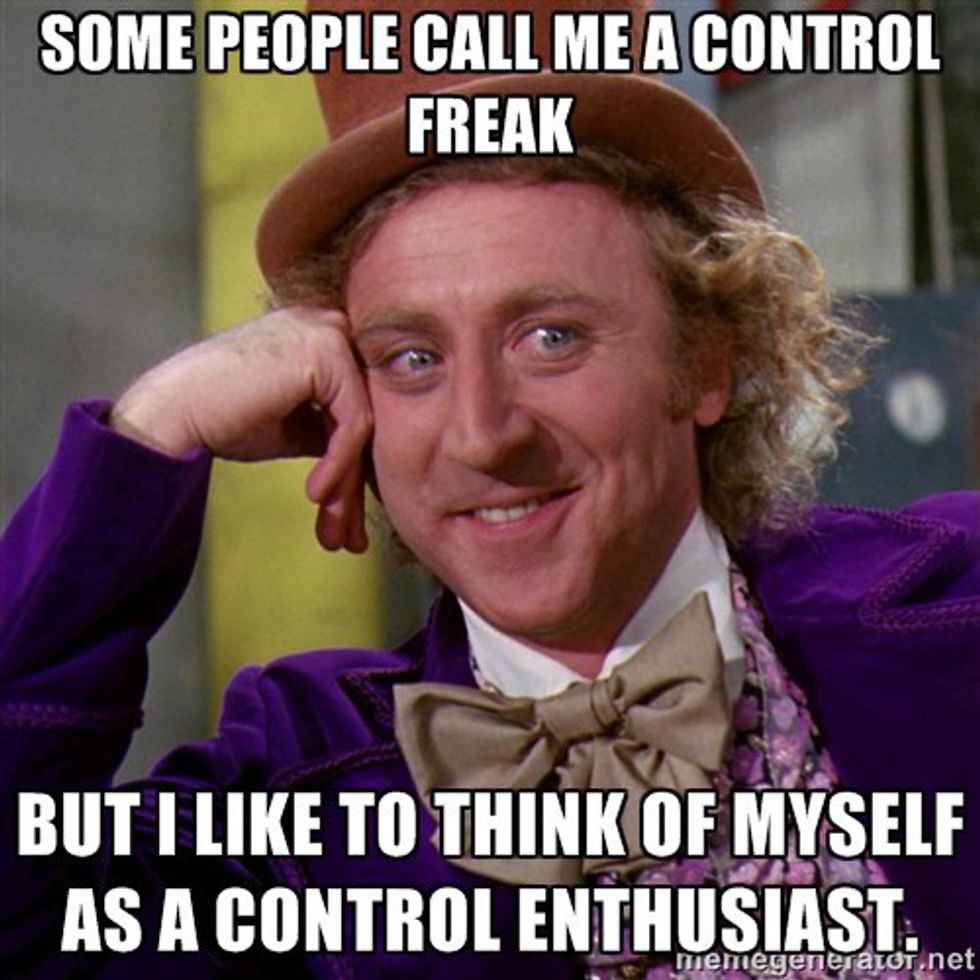Everyone knows those people who want to join every group or club that they have any interest in and who always end up in a leadership position. These people are sometimes more commonly referred to as "control freaks." I know this type of person all too well because I happen to be one myself. Every time I join a new organization, I just can't resist accepting nominations from others or raising my hand when they ask for volunteers to run for a position of leadership. When I join a new group, I want do everything in my power to be a positive and influential addition because I do not believe in doing something at all unless I am going to give it 110 percent of my best effort.
Since I feel this way and have such a wide variety of interests, I seem to always find myself stretched way too thin. It’s a rather strange phenomenon because classes alone can be enough to take up the majority of any college student’s time, mine included. So why do I, and others like myself, choose to pile up meeting after meeting to the point that they start to conflict with each other? This can be both extremely stressful and exhausting, but I can never find anything that I am willing to give up once I commit to it.
When it comes to extracurricular activities, I am most definitely what you could call an “over committer.” But when it comes to personal relationships, especially romantic ones, I find myself shying away from the whole commitment thing. How can committing to people on an individual basis, as opposed to committing to a group or organization, be so absolutely terrifying? Isn’t a commitment a commitment, no matter what?
A commitment to any personal relationship, platonic or romantic, is basically a promise between the two people involved, whereas a commitment to an organization involves many more people. In a personal relationship, you focus simply on one other and what makes the connection work. A commitment to an organization requires much more, including accepting the responsibility for making decisions for and about everyone in the group. The latter task should most definitely be the more daunting of the two, but for me, it is the complete opposite.
I often wonder why this is such a major issue for me on a personal level. I am certain that it has nothing to do with anything I encountered growing up. But other than that, I have no idea where or when this fear of personal commitment originated. I love serving in various leadership roles within the organizations I choose to join, but with personal relationships, I am much more cautious and reserved. I am sure that I am not the only one who feels this way. My guess is that this discrepancy in commitment types is based on the level of what is at stake for you.
When you make a commitment to an organization, you feel a responsibility to give it your best effort. But ultimately, you are the one who has the potential to fail them, not the other way around. So there is no fear of that commitment, because there is very little at risk for you. In personal relationships, however, you find yourself on an equal standing with others, so they have just as much ability to let you down as you do to fail them. It is easy to understand the fear of commitment when you give someone the ability to hurt you or disappoint you, yet you have to trust that they are committed enough not to do so. Without a doubt, the risk factor is much higher in this scenario.
So if you are also an over committer with commitment issues, remember that you are not the kind of person who does things halfway. Decide what is most important in your life, and commit yourself to those people and things. Resist the urge to over-extend yourself so that you can continue to give your usual 110 percent to every commitment you make. As you are making your choices, find the courage to take the risk and commit to those personal relationships. And most importantly, remember to allow time to give your all to the people who care about you the most.























